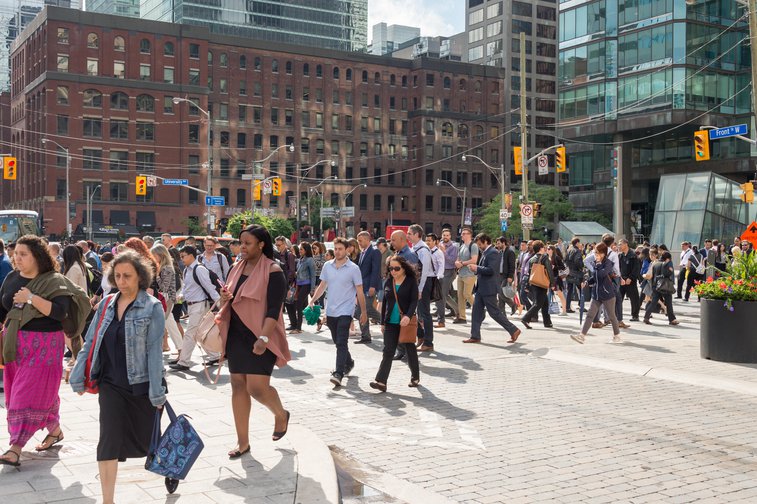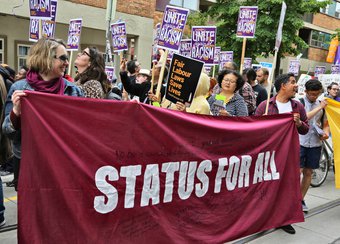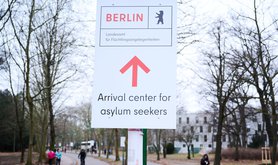
Will hate crimes make Canada a less attractive destination for immigrants?
Canada has long claimed to be a global defender of human rights, but it has not always been welcoming towards immigrants from East and Southeast Asia
Since the start of the pandemic, there has been a reported intensification in racially motivated hate crimes against immigrants from East and Southeast Asia in many Western countries, including Canada. But do such xenophobic crimes affect migration to the countries in which they take place?
To answer this question, we first need to understand that, to many immigrants, the decision to migrate depends on a set of factors; some that push them to leave their home country, while others pull them to the host country.
The fact is that Canada has not always been a welcoming country – rather it has a well-documented history of racial discrimination against immigrants. In fact, most Asian immigrants in Canada are aware of racism, both covert and overt. With the popularization of information and communication technology, it is imaginable that many seeking to move to the country have been prepared by their families and friends already in Canada for discrimination, particularly in the job market, which is notorious for its systemic discrimination against professional credentials, work experience, language, culture and race of ethno-racial minority immigrants.
Of the top ten countries of birth of recent immigrants to Canada, seven are in Asia
Yet given these challenges, why do tens of thousands of immigrants from East and Southeast Asian countries still decide to immigrate to Canada every year?
Before 1967, when Canada introduced its points-based immigration system, immigrants to Canada were overwhelmingly from Europe. The point system welcomed young, educated and skilled immigrants, and shifted the major sources of immigrants to Canada from Europe to Asia. According to the 2016 census, among the top ten countries of birth of recent immigrants, seven are in Asia, namely the Philippines, India, China, Iran, Pakistan, Syria and South Korea. With a long history of migration to Canada, immigrants from these countries have also established a strong transnational social network that facilitates the migration of fellow friends and families and their settlement and integration in Canada.
A better future
Seeking a better economic future is believed to be a key force behind transnational migration, particularly from the Global South to the Global North. Political instability and oppression are other major factors driving people voluntarily and involuntarily to leave their countries, such as the case of Syria and Iran. Recently, the military suppression of democracy movements in Myanmar, the civil unrest in Thailand, China’s military pressure on Taiwan and the imposition of National Security Law on Hong Kong have caused many people to consider leaving their home countries.
Immigrants to Canada have long cited seeking better futures for their families as the number one reason why they decided to emigrate. Some were even willing to trade off economic loss for political stability. One example is the 380,000 Hong Kong immigrants who travelled to Canada in the 1980s and 1990s, amid the uncertainties surrounding the transfer of sovereignty of Hong Kong from Britain to China.
For many immigrants, Canada and other Western countries are attractive not only because of better economic opportunities but because of political stability, safety, lifestyle, education, as well as social and health protection, to name just a few reasons.
Canada has repeatedly claimed to be a global defender of human rights. Recently, the Canadian government apologized and compensated for racially motivated wrongdoings in the past, such as the head tax on Chinese immigrants and the internment of Japanese-Canadians. Hate crimes against Asians and any other ethno-racial groups simply jeopardize Canada’s global reputation and moral credibility.
Related story
Meanwhile, as a country that relies on immigrants to replace the shrinking domestic supply of talents to our labour market, Canada is competing for high-skilled talents in demand globally. If it is to become an appealing destination, we must create a welcoming and inclusive environment for immigrants in Canada. Racism will certainly weaken this, and also make it more difficult to retain immigrants, particularly those who are highly skilled, and can choose to leave. In 2006, there were already 2.8 million Canadians living abroad, many of whom had originally been immigrants to Canada, including 300,000 who returned to, and still reside in, Hong Kong.
The intensification of anti-Asian hate crimes since the start of the pandemic may not reduce the number of immigrants who choose to move to Canada or to other Western democracies. But a socially unwelcoming society will have difficulties competing for and retaining global talents.
To make Canada a welcoming place, where immigrants can secure a better future for their families and contribute to society, all levels of government and the general public need to step up to combat all forms of racism against all minorities.
Read more
Get our weekly email






Comments
We encourage anyone to comment, please consult the oD commenting guidelines if you have any questions.